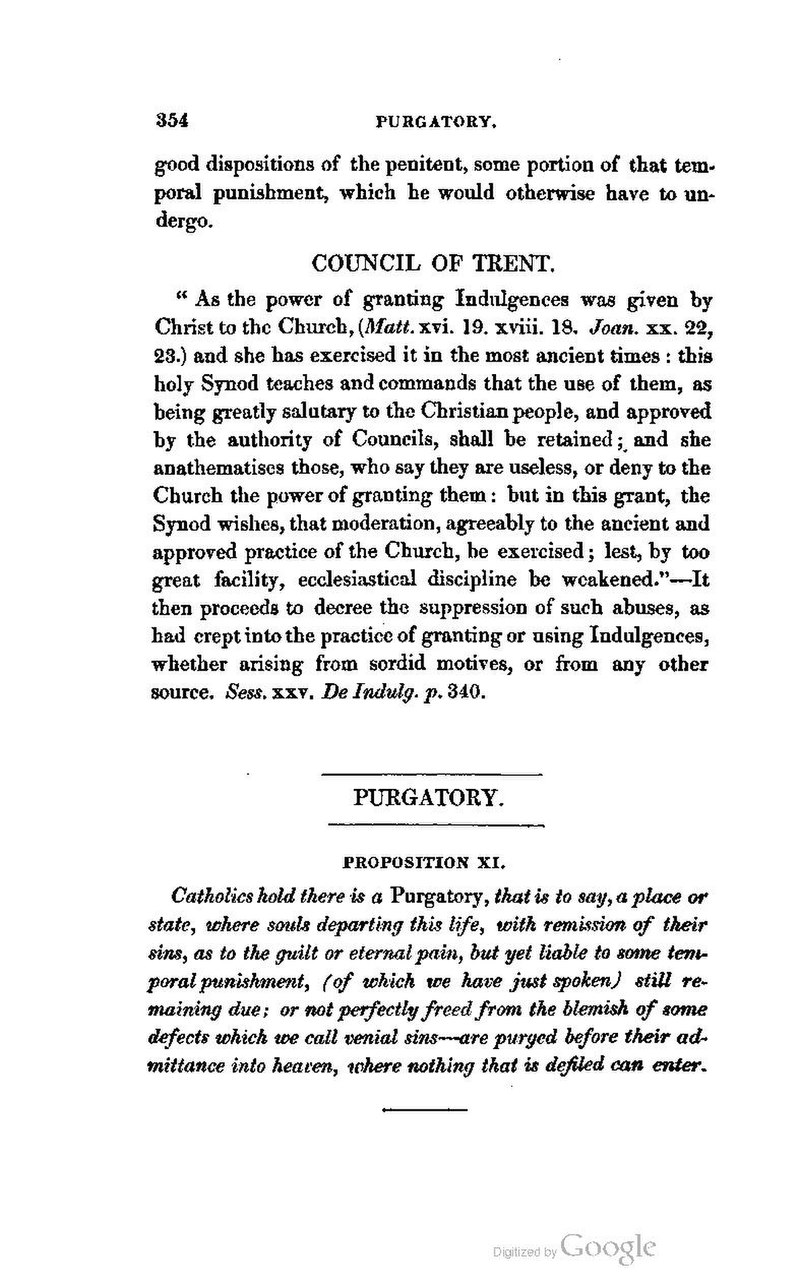good dispositions of the penitent, some portion of that temporal punishment, which he would otherwise have to undergo.
COUNCIL OF TRENT.
“ As the power of granting Indulgences was given by Christ to the Church, (Matt. xvi. 19. xviii. 18. Joan. xx. 22, 23.) and she has exercised it in the most ancient times : this holy Synod teaches and commands that the use of them, as being greatly salutary to the Christian people, and approved by the authority of Councils, shall be retained; and she anathematises those, who say they are useless, or deny to the Church the power of granting them: but in this grant, the Synod wishes, that moderation, agreeably to the ancient and approved practice of the Church, be exercised; lest, by too great facility, ecclesiastical discipline be weakened.”—It then proceeds to decree the suppression of such abuses, as had crept into the practice of granting or using Indulgences, whether arising from sordid motives, or from any other source. Sess. xxv, De Indulg. p. 340.
PURGATORY.
PROPOSITION XI.
Catholics hold there is a Purgatory, that is to say, a place or state, where souls departing this life, with remission of their sins, as to the guilt or eternal pain, but yet liable to some temporal punishment, (of which we have just spoken) still remaining due; or not perfectly freed from the blemish of some defects which we call venial sins--are purged before their admittance into heaven, where nothing that is defiled can enter.
